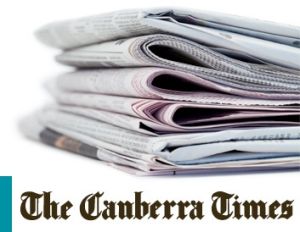Editorial

Tony Abbott’s latest somersault on Medicare payments yet again thrown into confusion what the government wants, intends and is able, practically and politically, to achieve, in health policy. But that’s the least of it. The turnaround has yet again done fundamental damage to any of engaged calm, measured steady and purposeful policy-making and public administration. What has been seen instead has been panic, rule by opinion poll, ad hoc decision-making, and systemic failures to consult with affected interest groups, including the party backbench, the states and health care consumers. Behind all of that is the fatal continuation of failures to explain, defend and satisfy the public about the background to the policy.
The measures, including ill thought-out measures designed to considerably reduce the payment going to GPs for short visits to the doctor, were due to come into effect this week. They had been announced only last month and were sneakily promulgated by executive fiat. It was soon obvious that the Senate, on its return, would disallow the changes. It was also clear that the government was not well informed about the practical impact of the changes. The result is a total humiliation for Abbott, who had been publicly defending the measures almost to the last. The measures lacked even the support of his own party.
The tactics and execution can hardly be blamed on Sussan Ley, the new minister for health. It had been a policy imposed upon her by cabinet at the time of her appointment, a cross she had to bear as part of showing that she was up in playing the the big leagues. But it would be wrong to simply blame the bad idea on the departing minister, the hapless Peter Dutton, now consigned to immigration and border control. Dutton himself had long been a complete lame duck with the policy – seemingly unable to explain it, unconvincing in defending it, and certainly incapable of negotiating its passage through the Senate. True, the Senate was being populist, but so had Abbott himself in opposition been whenever there were any suggestion of higher charges, or, as Abbott would have said, taxes.
Like Christopher Pyne in education, and, formerly, Kevin Andrews in social services, Dutton may have proven a very poor and unconvincing advocate for policies in his portfolio. But it is simply impossible to place the blame on a few dud ministers. Theirs was the carriage of decisions made in cabinet, under the active chairmanship of Abbott. The context and the rationale, and the development of a overall package widely seen as unfair came not only from Abbott himself, but from the Treasurer, Joe Hockey, and the Minister for Finance, Mathias Cormann.
Voters are used enough to single unpopular measures. But as Abbott’s mentor, John Howard, has commented in recent times, they will cop them if they understand them, if they see smooth with the rough, and if they have been persuaded about the economic and financial background which has caused government to do unpopular things. It is in this context that the “barnacles” on the government ship needing to be scraped off in early December were barnacles of the whole government’s own creation.
Abbott’s handling of the matter over the Christmas period, right up to Thursday’s backdown on a previous backdown, suggests that neither he, nor cabinet, has learnt much from the embarrassment to adult government the episodes have shown. Voters are also fey to spin, repeated subsidiaries and fine distinctions from leaders, and the tendency to try to achieve identical results by clever tricks and back doors. When Howard dumped unpopular policy it stayed dumped.
It’s the more the pity because it would be possible, with good will and some genuine consultation, to devise Medicare policies which do send price signals to doctors and to customers, and which serve, at the least, to restrain the rate of growth of health expenditure. That, indeed, is a task to which Ley, still essentially a cleanskin in this area, has committed herself. But her biggest obstacle will be of public and stakeholder suspicion of the agenda of cabinet, and despair about collapsed and deaf decision-making processes. With or without some tinkering, Medicare and the health viscus is in better shape than the government itself. It’s government itself that needs the doctor, and for a long consultation.
